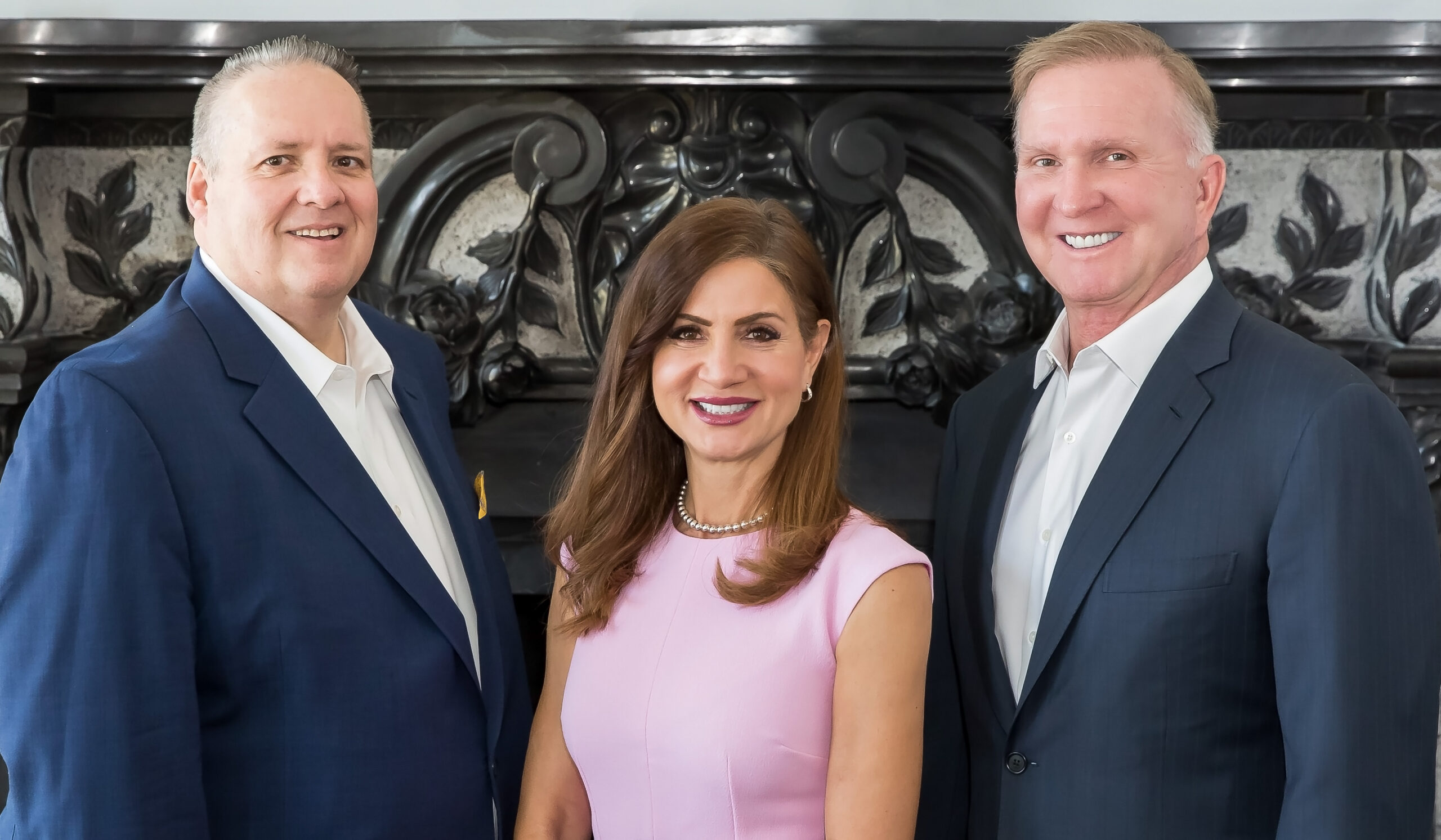 People pay a substantial portion of their income to insure their cars, homes, health, lives, businesses, or other investments. When you pay for insurance, you expect that insurance to act as a financial safety net, protecting you from harm and helping you recover after catastrophe. What happens when you have a legitimate claim, and the insurance company won’t uphold its legal duty?
People pay a substantial portion of their income to insure their cars, homes, health, lives, businesses, or other investments. When you pay for insurance, you expect that insurance to act as a financial safety net, protecting you from harm and helping you recover after catastrophe. What happens when you have a legitimate claim, and the insurance company won’t uphold its legal duty?
As for-profit businesses, insurance companies’ goal is to maximize profit and minimize spending and they are skilled at denying or settling claims for as little as possible, leaving policyholders with insufficient funds for their losses.
If you’ve been taken advantage of by your insurance company, Eglet Law is here to help, our experienced insurance bad faith lawyers in Las Vegas, NV, are equipped to help you gain the compensation you deserve.
What is Insurance Bad Faith?
In exchange for the purchase of an insurance policy, insurance companies owe a legal duty to their policyholders. These duties include a duty to provide coverage, a duty to honor the terms of the policy, and a duty to pay valid claims covered by said policy. Insurance bad faith occurs when an insurance company violates the implied covenant of good faith and fair dealing, a rule used by most courts in the United States that requires every party in a contract to implement the agreement as intended, not using means to undercut the purpose of the transaction. The implied covenant of good faith and fair dealing exists in every insurance contract in the United States.
Insurers commit acts of bad faith when they:
- Purposely fail to investigate claims.
- Discount or settle a claim for much less than is what is reasonable.
- Delay the process of filing a claim using tactics such as demanding unnecessary documentation from policyholders or deliberate misinterpretation of records to avoid coverage.
- Misinterpret policy language in order to deny a claim.
The Unfair Claims Settlement Practices Act
Many industries have adopted codes of ethics or standards of conduct to act as a guide to ensure that professionals conduct business with honor and integrity. Insurance companies are no different, The National Association of Insurance Commissioners (NAIC) created model laws which set forth standardized insurance regulations. One of those model laws, titled the “Unfair Claims Settlement Practices Act” mandates that claims be handled fairly and that there be clear communication between the insurer and the insured. This act sets forth guidelines for unfair practices regarding property, casualty, life, accident, health, and all other settlements. Many states have enacted a version of the Unfair Claims Settlement Practices Act (UCSPA) to protect insureds. It is important to note that these acts are not federal law and whatever version of the Unfair Claims Settlement Practices Act a state chooses to enact is governed by that state’s insurance department and commissioner.
Nevada Insurance Bad Faith Litigation
In Nevada, there are two avenues that can be taken to establish a valid insurance bad faith claim, the first being a breach of the implied covenant of good faith and fair dealing. To establish a breach of the implied covenant of good faith and fair dealing, the following must be proven:
- The insurance company had no reasonable bias for its conduct in the handling of a plaintiff’s claim;
- The insurance company knew, or recklessly disregarded, the fact that there was no reasonable basis for its conduct; and,
- The insurance company’s unreasonable conduct was a legal cause of harm to the plaintiff.
The second avenue focuses on a breach of statutory duties in relation to NRS 686A.310, Nevada’s unique adaptation of the Unfair Claims Settlement Practices Act:
NRS 686A.310, titled Unfair practices in settling claims; liability of insurer for damages, states:
1. Engaging in any of the following activities is considered to be an unfair practice:
(a) Misrepresenting to insureds or claimants pertinent facts or insurance policy provisions relating to any coverage at issue.
(b) Failing to acknowledge and act reasonably promptly upon communications with respect to claims arising under insurance policies.
(c) Failing to adopt and implement reasonable standards for the prompt investigation and processing of claims arising under insurance policies.
(d) Failing to affirm or deny coverage of claims within a reasonable time after proof of loss requirements have been completed and submitted by the insured.
(e) Failing to effectuate prompt, fair and equitable settlements of claims in which liability of the insurer has become reasonably clear.
(f) Compelling insureds to institute litigation to recover amounts due under an insurance policy by offering substantially less than the amounts ultimately recovered in actions brought by such insureds, when the insureds have made claims for amounts reasonably similar to the amounts ultimately recovered.
(g) Attempting to settle a claim by an insured for less than the amount to which a reasonable person would have believed he or she was entitled by reference to written or printed advertising material accompanying or made part of an application.
(h) Attempting to settle claims on the basis of an application which was altered without notice to, or knowledge or consent of, the insured, or the representative, agent or broker of the insured.
(i) Failing, upon payment of a claim, to inform insureds or beneficiaries of the coverage under which payment is made.
(j) Making known to insureds or claimants a practice of the insurer of appealing from arbitration awards in favor of insureds or claimants for the purpose of compelling them to accept settlements or compromises less than the amount awarded in arbitration.
(k) Delaying the investigation or payment of claims by requiring an insured or a claimant, or the physician of either, to submit a preliminary claim report, and then requiring the subsequent submission of formal proof of loss forms, both of which submissions contain substantially the same information.
(l) Failing to settle claims promptly, where liability has become reasonably clear, under one portion of the insurance policy coverage in order to influence settlements under other portions of the insurance policy coverage.
(m) Failing to comply with the provisions of NRS 687B.310 to 687B.390, inclusive, or 687B.410.
(n) Failing to provide promptly to an insured a reasonable explanation of the basis in the insurance policy, with respect to the facts of the insured’s claim and the applicable law, for the denial of the claim or for an offer to settle or compromise the claim.
(o) Advising an insured or claimant not to seek legal counsel.
(p) Misleading an insured or claimant concerning any applicable statute of limitations.
2. In addition to any rights or remedies available to the Commissioner, an insurer is liable to its insured for any damages sustained by the insured as a result of the commission of any act set forth in subsection 1 as an unfair practice.
(Added to NRS by 1975, 1285; A 1987, 1067; 1991, 2202)
NRS 686A.310 defines the type of behavior that is considered insurance bad faith but further, as stated in section 2, it allows for a private right of action to be brought for violations of the UCSPA. Nevada is only one of ten states that allows a claimant to file a private right of action and possibly recover damages for a violation of the UCSPA.
It is important to note that a claimant does not need to establish both breaches to bring a valid insurance bad faith claim.
Eglet Law Insurance Bad Faith Attorneys
Eglet Law is one of the most successful and well-respected law firms in the State of Nevada.
Insurance bad faith cases can be complex and often require extensive documentation and expert testimony to successfully prove a claim. Litigation can be difficult and expensive, and if an insurance company knows that a firm does not routinely try cases, it will often low-ball the negotiations. No matter the complexity of the case, our team has the experience and sophisticated approach needed to take a case all the way to trial. As one of the few personal injury trial firms in Las Vegas, our case preparation and ability to execute is well respected throughout the Nevada court system.
To arrange a free initial consultation to discuss your case with a Las Vegas insurance bad faith Lawyer, contact us at (702)450-5400 or submit a contact form.
When Insurance Misrepresents Policy Terms And Coverage
Understanding the nuances of insurance policies can be challenging for policyholders, as our Las Vegas, NV insurance bad faith lawyers know. Unfortunately, there are instances where insurance agents misrepresent the terms and coverage of a policy, leading to significant problems when a claim is filed. This form of misconduct can give rise to insurance bad faith claims, which protect consumers from unethical practices within the insurance industry. Attorney Robert Eglet, a founding partner of our firm, has helped many clients with insurance bad faith claims.
The Role Of Insurance Agents
Insurance agents are trusted to provide accurate information and guidance about the policies they sell. Their role is crucial, as policyholders rely on their expertise to make informed decisions about their coverage. However, when agents misrepresent policy terms—whether intentionally or due to negligence—it can result in policyholders being inadequately covered or entirely uncovered for specific risks. This misrepresentation can be particularly harmful when a claim is made, and the policyholder discovers that their understanding of the coverage does not align with the actual terms of the policy.
Consequences Of Misrepresentation
When misrepresentation occurs, the policyholder may face unexpected financial burdens. For instance, a homeowner might believe they have full coverage for flood damage, only to learn after a flood that their policy excludes such events. This discrepancy can leave the policyholder responsible for substantial out-of-pocket expenses. Our Las Vegas insurance bad faith lawyers know that in such situations, the policyholder may have grounds for a bad faith claim against the insurance company, especially if it can be demonstrated that the agent’s misrepresentation led to the lack of coverage.
Proving Bad Faith
To succeed in a bad faith claim, the policyholder must prove that the agent’s misrepresentation was a direct cause of the denial or underpayment of a claim. This involves demonstrating that the agent provided false or misleading information about the policy and that the policyholder relied on this information to their detriment. Evidence such as written communications, recorded conversations, and witness testimony can be critical in establishing the agent’s misconduct and the resulting impact on the policyholder.
Legal Remedies
Policyholders who successfully prove bad faith may be entitled to various forms of compensation. This can include the amount of the denied or underpaid claim, as well as additional damages for emotional distress, financial losses, and in some cases, punitive damages. Punitive damages are particularly significant as they are intended to punish the insurance company and deter similar conduct in the future.
Take Action Now
If you believe you have been a victim of insurance bad faith due to an agent’s misrepresentation, it is essential to seek legal advice. We specialize in handling insurance bad faith claims and are dedicated to protecting the rights of policyholders. Our experienced attorneys can help you navigate the complexities of your case, gather the necessary evidence, and advocate on your behalf to ensure you receive the compensation you deserve. Let us assist you in holding insurance companies accountable for their actions. Contact Eglet Law today to schedule a consultation and take the first step toward resolving your insurance dispute with the help of our insurance bad faith lawyers in Las Vegas.
Client Review
“Robert and Tracy are brilliant attorneys! I would send anyone to their firm for representation.”
Mandy McKellar




